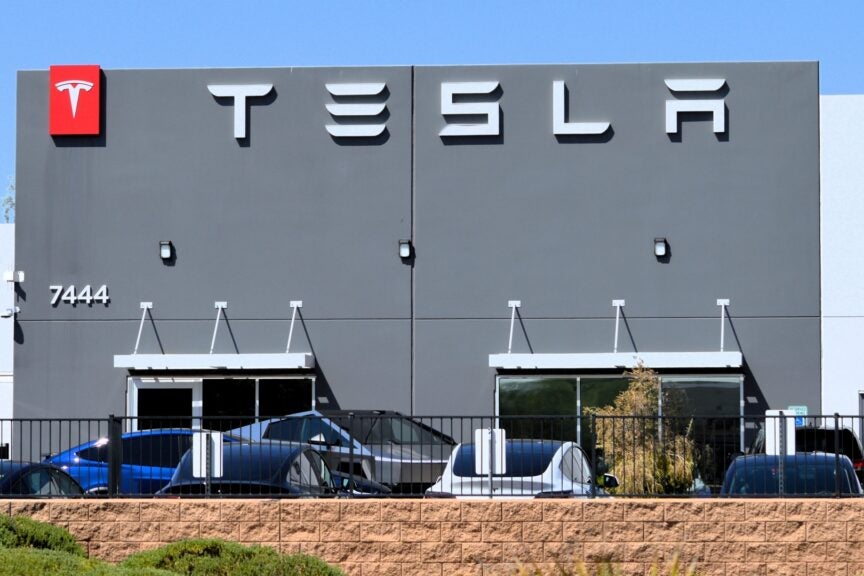Is a ‘Golden Era’ on the Horizon for Tesla? Analyst Predicts $2 Trillion Market Cap Potential
Renowned Wedbush analyst Dan Ives has ignited excitement in the financial world by predicting Tesla could reach a $2 trillion market cap in the coming years. In a recent research note, Ives suggested the electric vehicle (EV) pioneer is entering a transformative phase fueled by technological breakthroughs, global expansion, and AI integration. This bullish forecast comes as Tesla navigates a pivotal moment in its growth trajectory, with its stock rebounding nearly 70% from April 2024 lows.
The Catalysts Behind Tesla’s Potential $2 Trillion Valuation
Ives identifies four primary drivers that could propel Tesla into unprecedented valuation territory:
- Full Self-Driving (FSD) Technology: With version 12.4 demonstrating 99% intervention-free miles in internal tests, Tesla’s autonomous driving software could generate $20 billion annually by 2030.
- Energy Storage Expansion: Megapack installations grew 360% year-over-year in Q1 2024, with a $10 billion backlog.
- Global Manufacturing Footprint: New factories in Mexico and Indonesia could double production capacity to 5 million vehicles annually by 2026.
- AI and Robotics Integration: Optimus humanoid robot prototypes are now being tested in Tesla factories, with potential commercial deployment by 2026.
“Tesla is evolving from an auto company to a vertically integrated tech ecosystem,” Ives noted in his report. “The sum-of-the-parts valuation suggests we’re looking at the next Apple-like growth story in the making.”
Financial Performance and Market Position
Despite recent challenges, Tesla maintains formidable advantages in the EV sector:
- Industry-leading 21.7% automotive gross margins (Q2 2024)
- $26 billion in cash reserves with minimal debt
- 38% global EV market share, down from 52% in 2022 but still dominant
- 12,000+ Supercharger stations worldwide (35% year-over-year growth)
However, not all analysts share Ives’ enthusiasm. “Tesla faces intensifying competition from BYD, Hyundai, and traditional automakers,” cautions Morgan Stanley’s Adam Jonas. “While their technology lead is real, execution risks remain substantial at this scale.”
The Road to $2 Trillion: Challenges and Opportunities
Reaching a $2 trillion valuation would require Tesla to:
- Maintain 30%+ annual revenue growth through 2030
- Successfully monetize its AI and software platforms
- Expand profit margins in energy storage and services
- Navigate increasing regulatory scrutiny globally
The company’s energy business shows particular promise, with solar deployments growing 45% year-over-year and storage deployments up 140%. “Tesla Energy could become larger than automotive within this decade,” predicts ARK Invest’s Tasha Keeney.
Technological Moats and Competitive Advantages
Three key differentiators position Tesla for potential dominance:
- Data Advantage: 10 billion+ real-world autonomous miles collected (3x all competitors combined)
- Vertical Integration: Controls battery production, software, and charging infrastructure
- Brand Equity: Consistently ranks as the world’s most valuable auto brand ($66 billion valuation)
Tesla’s Dojo supercomputer, operational since late 2023, provides another edge. The system can process autonomous driving data 40% faster than previous systems, accelerating FSD improvements.
What a $2 Trillion Tesla Would Mean for Investors
Achieving this milestone would represent:
- 5x growth from current ~$400 billion market cap
- 20% of projected 2030 global auto industry value
- Larger than today’s entire energy sector market cap
“This isn’t just about cars anymore,” explains tech analyst Gene Munster. “Tesla is building infrastructure for the electrified, automated future. If they execute well, $2 trillion might be conservative.”
The Path Forward: Risks and Considerations
Investors should weigh several factors:
- Regulatory approval for autonomous vehicles remains uncertain
- Lithium and nickel price volatility could impact margins
- Labor costs are rising across all manufacturing facilities
- CEO Elon Musk’s divided attention across multiple companies
Despite these challenges, Tesla’s innovation pipeline appears robust. The company recently unveiled its next-generation 4680 battery cells with 20% greater energy density and 50% lower production costs.
Conclusion: A Transformative Decade Ahead?
While Tesla’s journey to $2 trillion remains speculative, the company continues to redefine transportation and energy. As the world transitions to sustainable energy, Tesla’s integrated approach positions it uniquely to capitalize on multiple trillion-dollar markets. Investors should monitor several key developments in coming quarters:
- FSD regulatory approvals in major markets
- Progress on next-generation vehicle platforms
- Energy storage margin improvements
- International factory ramp-ups
For those tracking Tesla’s progress, the company’s Q3 earnings call on October 18 may provide crucial insights into whether this “golden era” prediction holds water. Subscribe to our financial newsletter for ongoing analysis of Tesla’s path to potential trillion-dollar milestones.
See more Business Focus Insider Team

